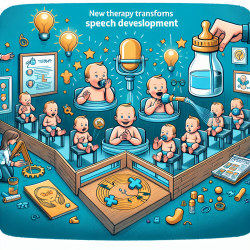The study emphasizes that disturbances in glucose metabolism during childhood can have lasting negative effects on brain development and related cognitive functions. Therefore, maintaining near-normal glycemic levels is essential to prevent central nervous system (CNS) disorders and optimize intellectual development. Here are key takeaways from the research that practitioners can integrate into their practice:
Key Strategies for Practitioners
- Repeated Neuropsychological Evaluation: Early detection of cognitive dysfunctions through repeated neuropsychological assessments is crucial. This allows for timely interventions tailored to the specific needs of each child.
- Individual Management Strategies: Develop personalized management plans that address the identified cognitive impairments. This includes training appropriate skills and providing comprehensive support to the child’s family and school environment.
- Dietary Interventions: Implement nutrition plans that not only focus on managing diabetes but also support brain development. An anti-inflammatory diet rich in essential nutrients can mitigate oxidative damage to brain structures.
- Physical Activity: Encourage regular, age-appropriate physical activity. Exercise improves cognitive functions and helps maintain glycemic balance, thereby supporting overall brain health.
In addition to these strategies, practitioners should advocate for the integration of new technologies such as insulin pumps and continuous glucose monitoring systems. These tools can help achieve better glycemic control, which is directly linked to improved cognitive outcomes.
Encouraging Further Research
While the current study provides valuable insights, continuous research is needed to fully understand the complex interactions between T1D and brain development. Practitioners are encouraged to stay informed about ongoing research and consider participating in studies that explore innovative therapeutic approaches.
In conclusion, optimizing intellectual development in children with T1D requires a multifaceted approach that includes maintaining near-normal glycemic levels, early detection of cognitive dysfunctions, personalized management strategies, proper nutrition, and regular physical activity. By implementing these evidence-based strategies, practitioners can significantly enhance the cognitive and overall developmental outcomes for children with T1D.
To read the original research paper, please follow this link: Brain functional and structural changes in diabetic children. How can intellectual development be optimized in type 1 diabetes?










